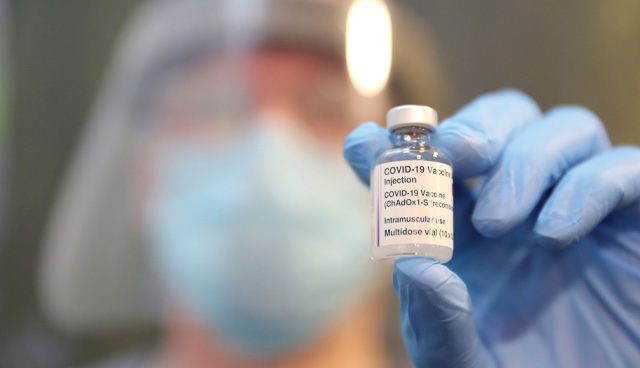Vaccine hesitancy

The effectiveness of the Covid-19 vaccine in Ireland could be hampered by high levels of vaccine hesitancy, an Oireachtas report has found.
The report published by the Oireachtas Library and Research Service, prior to vaccine roll out in Ireland, highlights warnings from some experts that the proportion of the population intending to take the Covid-19 vaccine may be too small to effectively stop the spread of the disease.
The first vaccine was issued in the Republic of Ireland on 30 December 2020 (the first vaccine on the island was issued on 8 December in the North). By 16 February, 293,752 vaccines had been administered, with over 65s in long-term care facilities and frontline healthcare workers being targeted first and plans to move to over 70s, healthcare workers and some priority 65- to 69-year-olds in the next phase.
Evidence of vaccine uptake is unlikely to emerge until vaccination roll-out reaches groups not deemed as priority, but the report by Jessica Doyle, a senior parliamentary researcher in social science, suggests a trend of decline in uptake of most vaccines in Ireland since 2014/15 and highlights that vaccine hesitancy is important when considering the “capacity of a vaccine to end the Covid-19 pandemic depends on both the effectiveness of the vaccine and the number of people taking it”.
Vaccine hesitancy is defined as the delay in acceptance or refusal of vaccines despite availability of vaccination services. It does not mean a blanket refusal of vaccines and vaccine hesitancy incorporates that individuals may accept all vaccines but remain concerned about them, they may refuse or delay some vaccines but agree to other vaccines, or they may refuse all vaccines.
In 2019 the World Health Organisation (WHO) declared vaccine hesitancy one of the 10 biggest threats to global health for the year.
Ireland (42 per cent) sits below the EU-28 average (45 per cent) in the European Commission’s Eurobarometer survey of people who said they had been vaccinated in the past five years.
A decline in vaccine uptake in Ireland is highlighted through uptake of primary childhood vaccines and the HPV vaccine. In 2014, uptake of primary school vaccines in Ireland (D3, T3, P3, Hib3, Polio3, PCV) at 12 months was 92 per cent. By 2017, this had dropped to 90 per cent and by 2018 it was 89 per cent. Decline in uptake of the HPV vaccine appears more rapid. Just under 90 per cent of the 2014/15 school year had at least stage one of the HPV vaccine compared to 66.6 per cent of the 2017/18 school year.
Concern about the decline does not feature in the Government’s National Covid-19 Vaccination Strategy, published in December 2020, which highlights Ireland’s “very high existing rate of vaccine uptake”, adding “unlike many other countries, we have a positive experience of restoring confidence in the HPV vaccine nationally, after it was challenged in the past by a misinformation campaign.”
The Oireachtas report highlights evidence from opinion polls prior to Covid vaccine emergence that “suggest that a sizeable portion of the population do not intend to use a Covid-19 vaccine, even if one becomes available”.
The Government’s Vaccination Strategy uses Amárach Research, highlighting that only 5 per cent of the population have said that they definitely won’t take the Covid-19 vaccine, and giving less emphasis to the fact that half the population (50 per cent) remained unsure.
The Oireachtas report highlights research that suggests that the less effective a Covid-19 vaccine is, the more of the population that would need to be vaccinated to end the pandemic. While vaccine hesitancy can come from a result of many factors, a finding by the Oireachtas report was that “the issue of lack of confidence as a barrier to vaccine uptake may be more pronounced in the case of Covid-19, as it is likely that any potential Covid-19 vaccine will be fast-tracked, albeit with appropriate trials.”
On the topic of addressing vaccine hesitancy, the report finds that “few strategies have been explicitly designed to address vaccine hesitancy and even fewer of these strategies have been evaluated for impact”.
A challenge for the Government and one which is set out in the Oireachtas report is the fact that hitherto “no data is collected or published on vaccine refusal rates in Ireland,” and that there have also been no substantial studies on what aspects negatively affect attitudes towards vaccination in Ireland.
However, the Government’s Vaccination Strategy acknowledges the need to build confidence and deliver a communications strategy, including the promotion of vaccine confidence and plans are in place for a research study by the HSE’s National Immunisation Office (NIO) to assess the levels of vaccine acceptance in Ireland.





